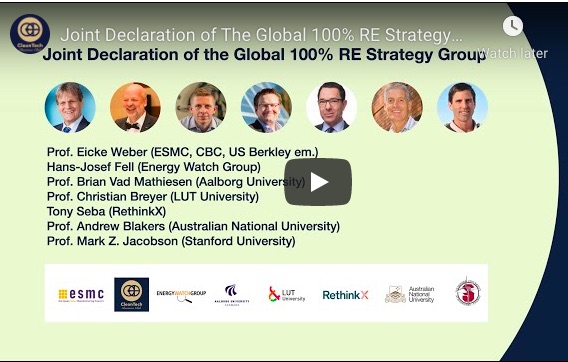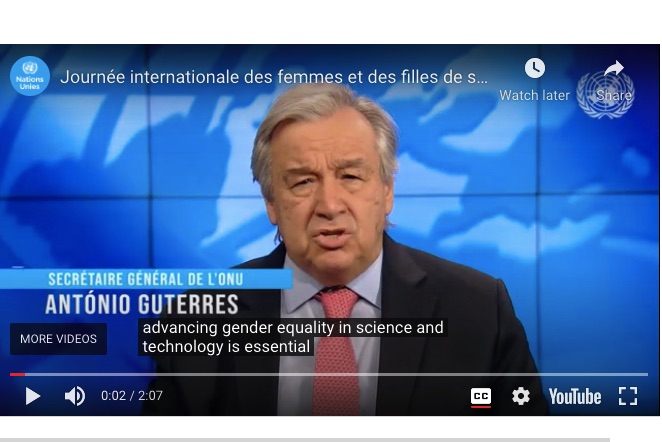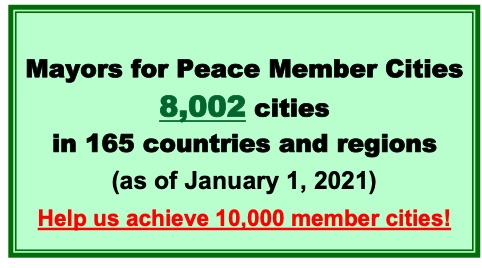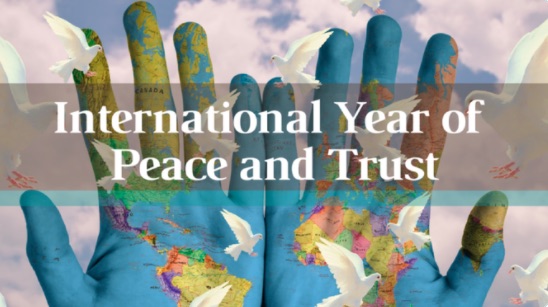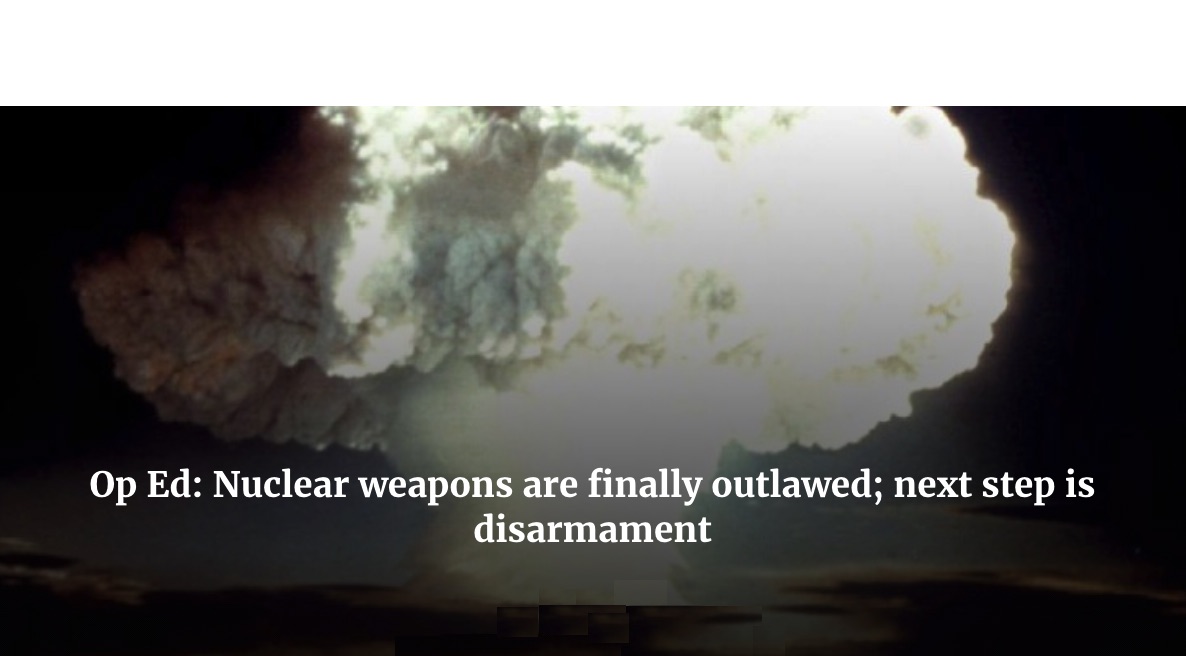FREE FLOW OF INFORMATION
Here are events from December that were previously listed on the CPNN page for upcoming virtual events. Unless otherwise noted the events are in English.
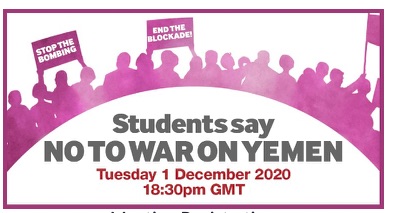
Dec 1, 2020 18:30 PM in London
Students say No to War on Yemen
The war in Yemen has entered its sixth, devastating year. Over 100,000 people have died and millions are the brink of famine. The British Government is complicit in this war; over £5 billion worth of arms have been sold to the Saudi coalition since the start of the war and RAF personnel have maintained Saudi planes and directed the bombings. Stop the War Coalition, alongside organisations around the world, has called a global day of action against the war on Yemen on 25th January 2021. Students have played a major role in fighting against British involvement in the war, organising protests across the country over the summer, and will have a vital role in building the day of action. Join us to discuss how we can take action on the 25th January and end the war on Yemen.
— Speakers (tbc):
Lucy Nichols, Stop the War
Malak Mayet, Campaign Against the Arms Trade
Adhiyan Jeevathol, London Students for Yemen
Lamar Campbell, Young Labour International Representative
Hasan Patel, Young Labour Under 18’s Representative
Register here
December 3-5
Development, Environment and Peace Nexus (DEEPEN): Peace Making in Borderlands
United Nations Research Institute for Social Development
— Violence and conflict in borderlands are inseparable from environmental degradation and hinder social development. This close connection, however, also provides the potential to reverse the vicious cycle of conflict, disruption to nature and social exclusion and move, through a holistic transformative approach, toward a virtuous cycle of peace, ecological integrity and inclusive development. At this uniquely multidisciplinary conference, speakers will explore the complex relationships between development, environment and peace in borderlands, challenging conventional approaches and introducing innovative theories and practices for sustainable and peaceful development.
— Click here for the program
— The on-line event is open to a global audience and free of charge. Register here.
Friday 4th December 2020 9.15am–12pm GMT
European peace and security through the 2020s
Mayors for Peace European Chapter, NFLA and ICAN joint webinar
How do we create a safer, more peaceful continent free of nuclear weapons?
— The webinar will bring together mayors and experts on nuclear disarmament, and will concentrate on the important role of local towns and cities in creating safe, resilient, sustainable and more peaceful communities.
— This meeting will be hosted on Zoom and will also be streamed live on You Tube. The meeting will be held in English, with English-Spanish simultaneous translation offered by the City of Granollers.
— Register here
December 5 and 6
Conference for climate justice and peace
United for Intercultural Action : European Network against nationalism, racism, fascism and in support of migrants and refugees
— We want to invite you to join us online for a conference which is going to take place online on December 5th and 6th, 2020 on the 10th anniversary of thePrague Spring 2 network.
This time the following questions are going to be raised:
— How can we organize a campaign in all parts of Europe for an eco-social transformation and disarmament and a Nuke Free Europe and Climate Justice?
— How can communities strengthen each other across borders finding ways to build trust and resilience through local food production and stronger solidarity economies?
— How can we dismantle authoritarian, military, trade and financial international regimes that support the continuation of racist colonial and neocolonial oppression and where and what can be the contribution of our organizations like trade unions, peasant and Human Rights organizations to peace and democracy?
— Click here for the program
— Register here. Zoom link will be sent by email.
9 December 9:00 -10:30 (Mexico City)
“Protecting Human Rights Defenders: the commitment of the European Union”
On the occasion of the International Human Rights Defenders Day, the Delegation of the European Union to Mexico invites you to this webinar with the participation of human rights defenders in Mexico.
— Registration required: http://bit.ly/39umEMv
Mercredi 9 décembre 10H-12H France (en français)Le désarmement conventionnel, influence t-il le désarmement nucléaire ?
— L’Union européenne, et plus largement les Etats du continent européen ont une approche très variée concernant le sujet du désarmement nucléaire. . . Dans le domaine du désarmement conventionnel l’unité est plus forte, tous ayant adhéré aux différentes normes internationales. La récente fin du Traité sur les forces nucléaires à portée intermédiaire (qui visait à éliminer des missiles emportant aussi bien des charges nucléaires ou conventionnelles) a montré une nécessité de renforcer une voie européenne du désarmement (face à la Russie, la Chine, les Etats-Unis). Mais cette voie commune peut-elle exister au niveau du désarmement conventionnel et nucléaire ? Ou c’est l’unité face aux enjeux de désarmement classique qui peut permettre d’entrainer (une sorte d’étapes par étapes) une position plus forte et commune sur l’interdiction et l’élimination des armes nucléaires ?
— ICAN France, avec le soutient de la Heinrich Boell Stiftung Paris, vous invite à entendre des chercheurs et parlementaires sur ces réflexions, puis à débattre avec eux.
— Inscription : https://zoom.us/webinar/register/WN_dkTCQ7d7SDaK2vBwghTtcw
9 December 2020, 3.00 PM – 4.30 PM CET
Webinar on human rights, peace and security in the Americas
Welcome to a webinar on human rights, peace and security in the Americas, organised by the Swedish Foundation for Human Rights together with the Nordic Institute of Latin American Studies at Stockholm University.
— In the seminar we will discuss the impact of the Inter-American Commission and Court* on the situation for human rights, peace and security in different countries of the Americas. We will also examine the limitations to their power and the possibilities to influence the ongoing crises we see in for example Venezuela and Nicaragua. We are very pleased to be able to draw on the knowledge of prominent experts in different fields to guide us on the topic of the webinar, including the finalists of the Swedish Foundation for Human Rights student essay competition 2020!
— Panellists and presenters:
— Andrés Rivarola Puntigliano, Director of the Nordic Institute of Latin American Studies.
— Diego Rodríguez-Pinzón, Professorial Lecturer in Residence and Co-Director of the Academy on Human Rights and Humanitarian Law at American University Washington College of Law (WCL).
— Pär Engström, Senior Lecturer in Human Rights at the Institute of the Americas, University College London.
— Amalia Ydrefelt Hanell, law student, Uppsala University.
— Lovisa Kårelius, law student, Uppsala University.
— Helmer Jonelid, law student, Uppsala University.
— Moderator: Sofia Fotini Ekarv, Swedish Foundation for Human Rights
— Please register for the webinar here
Thursday – Dec 10, 2020, 3:00 pm – 4:30 pm CET (Central European Time)
Peace and Human Rights issues in the Gulf Region
Join us for a diverse and innovative discussion of Peace and Human Rights issues in the Gulf Region. The Webinar will feature:
— Husain Abdulla, Executive Director of ADHRB, Bahrain
— Sarah Leah Whitson, former Director of the MENA division of the Human Rights Watch, USA
— Dr. Saeed al-Shehabi, Political Activist and Member of the Bahrain Freedom Movement, Bahrain
— Yasmine Taeb, Senior Fellow on Congress and Foreign Policy at the Center for International Policy, Iran-USA
— Chaired by Amela Skiljan, IPB Coordinator, Germany
— To register, please send an email with your name and affiliation to: info@ipb-office.berlin
10 de diciembre a las 17:30 hora Ciudad de México
“Educación para Paz y Derechos Humanos” (en español)
JunPaz te invita a la converencia “Educación para Paz y Derechos Humanos”,.
Imparte: Roberto arlos Domínguez Cano, Doctorante en Negociación por el Instituto de Medicacón de México
— La podrás seguir por zoom. Inscripciones aqui
10 de diciembre a partir de las 2:00 p.m.(Colombia hora local)
Foro “Genocidio comunal y social en Colombia” (en español)
Con motivo de la conmemoración del Día Internacional de los Derechos Humanos, la revista Derecho y Realidad se complace en invitar al Foro “Genocidio comunal y social en Colombia”, que contará con la participación de reconocidas personalidades del ámbito nacional e internacional y en el que se debatirán acciones en defensa de la vida y obra de los líderes sociales y comunales, quienes están siendo víctimas de un genocidio sistemático, en medio del silencio estatal y la indiferencia social.
— Se podrán conectar por los siguientes links:
Zoom: https://us02web.zoom.us/j/82302616418
Youtube: https://www.youtube.com/channel/UCLgcDD5yfQkGp80PC6QU77w
Thursday December 10. 8am Central Europe Time (10 am Moscow, 1pm Dhaka, 4pTokyo/Seoul, 7pm Suva)
Friday December 11. 11:30 Eastern time USA/Canada. (5:30pm CET)
Launch of Youth Fusion: website and youth actions for nuclear abolition
— Youth around the world are standing up for peace and nuclear disarmament, and taking action in innovative ways that are making a difference. The Youth Working Group of Abolition 2000 global network to eliminate nuclear weapons builds cooperation amongst these youth actions, brings youth voices into key UN and other disarmament processes, and facilitates inter-generational dialogue to turn youth energy and vision into effective policy action.
— We invite youth, and the not-so-young, to join the Abolition 2000 youth working group as they launch Youth Fusion – the new online platform and youth action plan for a nuclear-weapons-free world.
— Program and other information for session 1 will be posted on the Session 1 event facebook page. Click here to register.
— Program and other information for session 2 will be posted on the Session 2 event facebook page. Click here to register.
11 diciembre – 13:30-16:30 GMT (Intérpretes: En/Es/Fr/Pt/It)
Llamado a la Asamblea Mundial Virtual de Habitantxs (3ª sesión)
— Para hacer el balance de la movilización global Cero Desalojos para Coronavirus
— Para acordar los ejes estratégicos de movilización: construir la alternativa basada en los derechos humanos y ambientales y la redistribución equitativa de los recursos
— Para definir la Agenda Solidaria de lxs Habitantxs 2021, la convergencia de las re-existencias en tiempos de pandemia
— Participación: Gunnar Theissen, Encargado de Derechos Humanos en apoyo del Relator Especial ONU sobre el Derecho a la Vivienda, OHCHR
— Haga clic para recibir el enlace Zoom para participar en la Asamblea!
December 9-12
Festival hip hop Cartagena
Bajo el lema ‘Cultura y artes para la paz’, El Festival hip hop Cartagena surgió como respuesta y alternativa a la crisis social y cultural que se vive en la ciudad de Cartagena, buscando mantener viva la cultura hip hop de la ciudad a través de acciones encaminadas al fortalecimiento de las raíces histórico culturales.
— El festival se llevará a cabo del 9 al 12 de diciembre, de manera virtual. El evento se transmitirá por las redes sociales oficiales del festival, por las redes oficiales de la Alcaldía Mayor de Cartagena en cabeza del Instituto de Patrimonio y Cultura de Cartagena-IPCC y los canales aliados independientes que se sumen a la causa. Además se contará con una excelente agenda académica con invitados de lujo que consta de los siguientes 5 conversatorios:
— Miércoles 09 de diciembre- 10:00 a.m.(hora local) Movimiento Hip hop en Cartagena 1980- 2000: ‘Resistencia y poesía callejera por una cultura de paz’
— Jueves 10 de diciembre – 10:00 a.m.(hora local) Cultura para el desarrollo: la cultura Hiphop en Cartagena de Indias.
— Jueves 10 de diciembre – 4:00 p.m.(hora local) La danza como escenario de poder
— Viernes 11 de diciembre – 10:00 a-m.(hora local) Industria de la música: salas de conciertos y distribución digital.
— Viernes 11 de diciembre – 4:00 p.m.(hora local) Derechos culturales, cultura hip hop y equidad de género.
— Click here for live videos
Thursday – Dec 10, 2020 and Sunday, December 13 @1 pm ET (Canada)
How Israel Became Its Own Worst Enemy and Its Hope for the Future: A Personal Perspective
Canadian Friends of Peace Now
How Israel Became Its Own Worst Enemy and Its Hope for the Future: A Personal Perspective
with Ami Ayalon and guest host Jim Torczyner
— Admiral (res.) Ami Ayalon is a former director of the Shin Bet (Israel’s security service), commander of the Israeli Navy, government minister and member of Knesset (Labour). He recently co-authored Friendly Fire: How Israel Became its Own Worst Enemy and the Hope for its Future. This is a memoir of Ayalon’s journey towards becoming a strong voice for peace between Israelis and Palestinians and his analysis of the barriers impeding peace. He critiques self-defeating policies that have undermined Israel’s civil society while heaping humiliation upon its Palestinian neighbours. The book discusses what Israel must do to achieve relative peace and security and to sustain itself as a Jewish homeland and liberal democracy.
— Audience questions welcome. You may send advance questions to info@peacenowcanada.org
— Register for this event here.
Monday, December 14-15
7:00 pm to 8:30 pm (New York), Monday 14 December
9:00 am to 10:30 am (Japan), Tuesday 15 December
Please join PeaceBoat for a very special online discussion with Ms Michiko Hattori, a survivor of the atomic bombing of Hiroshima
— Organised by Peace Boat and #Youth4Disarmament, a project of the United Nations Office for Disarmament Affairs (UNODA).h
— Seventy five years after the atomic bombings of Hiroshima and Nagasaki, the world still faces the grave threat of the nuclear weapons. As the hibakusha survivors age, there are fewer opportunities to listen to their first-hand stories. We can continue to honour them by celebrating their lives and work and by discussing possible actions we can take together and individually.
— A discussion wil be followed by a youth-led question and answer session.
— RSVP here: https://bit.ly/3qKpm6v
Dec 14-15
Dec. 14 at 8:00 PM in Eastern Time (US and Canada)
Dec. 15 at 10:00 AM KST
Militarization, Killer Robots, and the Korean Peninsula: The Case for Peace
— Join the transnational feminist campaign Korea Peace Now! for this discussion on on Dec. 14 at 8:00pm EST about killer robots in South Korea: what they are, why you should care, and how ending the Korean War can help stop them.
— Featuring:
Ray Acheson, Campaign to Stop Killer Robots
YouKyoung Ko, Women’s International League for Peace and Freedom
Youngmi Cho, Korean Women’s Movement for Peace
Moderated by Catherine Killough, Women Cross DMZ
— Simultaneous interpretation in Korean and English will be provided***
— Register here
Tuesday, Dec 15, 5:00 PM Pacific Time USA
“How to Avoid a War in Asia”
Join Code Pink, Beyond the Bomb, Women Cross the DMZ and World Beyond War for an amazing panel.
Panelists:
Hyun Lee: National Organizer, Women Cross the DMZ
Jodie Evans: Co-Founder, Code Pink
Molly Hurley: Organizer, Beyond the Bomb
David Swanson: Exec. Director, World Beyond War
Leah Bolger: Board President, World Beyond War
— Register here in advance for this meeting
After registering, you will receive a confirmation email containing information about joining the meeting.
Wednesday 16 December 2020 from 11:00 AM to 12:15 PM CET
Live Webinar: Accelerating Youth Inclusion in Building Peace
— To honour the 5th anniversary of the Youth, Peace and Security Resolution, the Kingdom of Denmark and the Kofi Annan Foundation are hosting an online panel discussion on how to accelerate change towards the meaningful inclusion of young women and men in shaping peace.
— Our panel of experts will share concrete examples and good practices of how member states, the EU and civil society organisations are contributing to the Youth, Peace and Security agenda and discuss what remains to be done to make youth inclusion a reality.
— Register here
Wednesday, December 16th 11:00 am EST. (1600 GMT)
“Jonathan Kuttab’s Booklet Launch” Webinar Registration – We Are All Part of One Another
— “I am launching a book which I hope, with your help can address the current impasse, and perhaps change the conversation around Israel / Palestine. Many activists are frustrated, despondent, and floundering with no clear vision or direction. We need some fresh out-of-the-box thinking. This is true for Palestinians, Israelis, and our friends in the international community. I’ve asked Nonviolence International, a group I co-founded and value deeply, to lead the effort to get this book into the hands of people across the political spectrum and across the world.
— To learn more about the text and see what people are saying, please visit: Beyond The Two-State Solution.
— Please RSVP here to join the launch event.
December 16-18
Workshop on contributions of smart city projects to climate resilience
— Co-organizers: Hiroshima University (Network for Education and Research on Peace and Sustainability), Global Carbon Project-Tsukuba International Office, Future Earth, Asia-Pacific Network for Global Change
Research (APN)
— This 3-day workshop is consisted of sessions related to three main activities:
1. The first day is allocated to presentations by authors who have submitted their works to be considered for publication in a special issue of Environment and Planning B. Details about the special issue are available at: https://journals.sagepub.com/page/epb/collections/special-issues 2.
On days 2 and 3 the participants will take part in interactive sessions focused on investigating the actual and potential contributions of smart cities to climate resilience.. . .
3. On day 3 a parallel session will be organized to discuss contributions of smart cities to urban climate change mitigation. . .
— Registration: Please register here to receive zoom link prior to the event. https://bit.ly/2HsrTQz
Sunday 20 December, 23:00 UTC+01
The Venezuelan Election, a blow to US Imperialism.
Organised by the United National Antiwar Coalition et Bahman Azad
— The United Socialist Party of Venezuela, the party of Nicolas Maduro won a stunning victory in the recent election for the National Assembly. However, the US has sought to undercut this victory and to deny the will of the Venezuelan people. This webinar will give us the chance to hear voices of people who were there as election observers and independent journalists and saw a different picture than the one projected by the US government. Their talks will be followed by questions and answers. Please join us and share the information about this webinar.
— Speakers:
— Margaret Flower, Popular Resistance
— Vijay Prashad, Tricontinental: Institute for Social Research
— Bahman Azad, U.S. Peace Council
— Zoe PC, Peoples Dispatch
Register here
Click here to watch replay on youtube
24 December 2020, 4:00PM Eastern Daylight Time (New York)
Deadline to submit application for Online Youth Consultation on Preventing Violent Extremism through Sport
— Invitation from the United Nations Alliance of Civilizations (UNAOC) within the framework of the UN Global Programme on Security of Major Sporting Events, and Promotion of Sport and its Values as a Tool to Prevent Violent Extremism, implemented by the United Nations Office of Counter-Terrorism (UNOCT) in partnership with UNAOC, United Nations Interregional Crime and Justice Research Institute (UNICRI) and the International Centre for Sport and Security (ICSS).
— The consultation aims to gather the input and guidance of young people in developing various outputs such as an awareness campaign to be launched concurrently with global sporting events next year and with the involvement of professional athletes; a policy guide; a handbook; and an app. These products will aim to advance the power of sport and its social values as a tool to prevent violent extremism, and to strengthen the engagement and cooperation of youth and Member States in using sport to promote sustainable peace and development.
— Participants must be :
* between 15 and 19 years old
* Wish to contribute to the advancement of sport in promoting social inclusion, ensuring sustainable peace and preventing radicalization and violent extremism
* Have experience with policy guides, innovative programmes, knowledge sharing tools and/or awareness raising/communication campaigns
— Click here for results of the Consultation.
Sunday, December 27. 2:00-4:00 PM Eastern Standard Time (US/Canada)
Global Town Hall
On the last Sunday of every month, Project Save the World hosts a one-hour conversation via Zoom videoconference about our various projects working to prevent one or more of these threats: war and weapons / global warming / famine / pandemics / radioactive contamination / cyberattacks.
— Video conference URL: https://zoom.us/j/9108970203
December 29
Deadline for nominations for the Peace and Climate action European Youth (PACEY) Plus Award 2021.
— Please make your nomination in one of the two categories:
1. European youth project: A project based in Europe or run by youth from Europe;
2. Beyond Europe youth project: A project based outside Europe or a Global youth project.
— Self-nominations are permitted.
— The Award is organised jointly by the Basel Peace Office and the Präsidialdepartement des Kantons Basel-Stadt, Kantons- und Stadtentwicklung (Office of Cantonal and Urban Development, Department of Presidential Affairs, Canton of Basel-Stadt, Switzerland).
— Questions to info@baselpeaceoffice.org.
— For more information please visit www.baselpeaceoffice.org
— Nomination form


